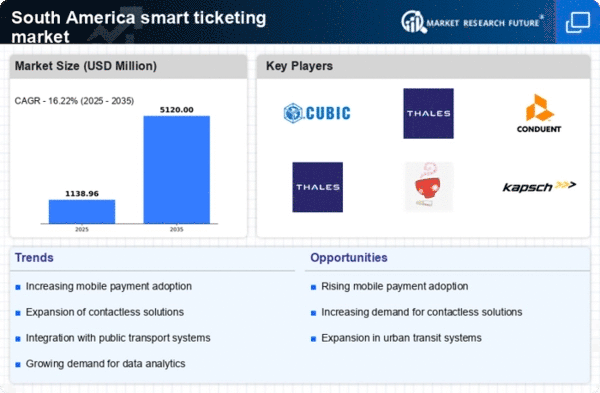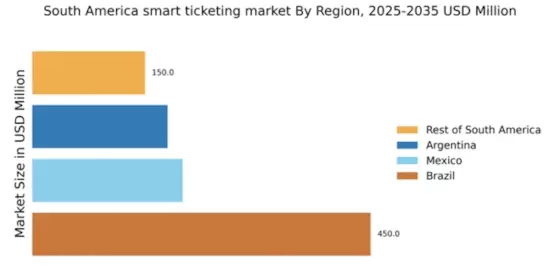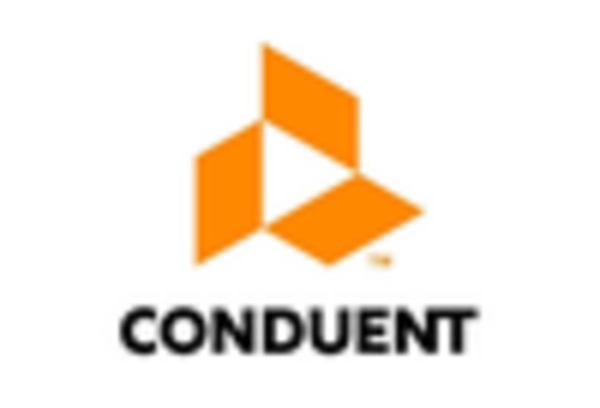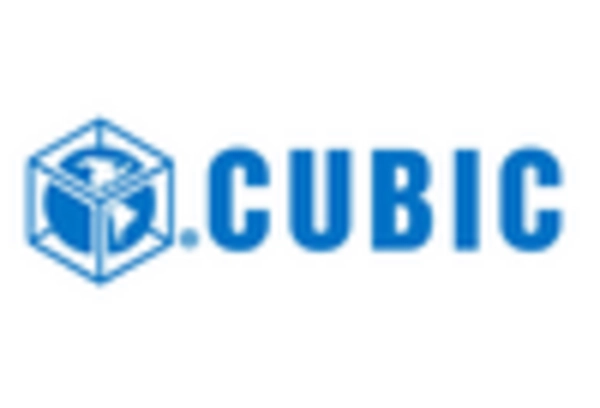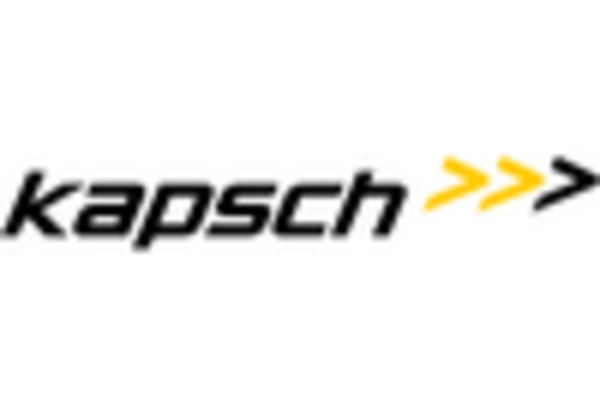Rising Urbanization and Commuter Demand
The rapid urbanization in South America is driving the smart ticketing market as cities expand and populations grow. With urban areas becoming increasingly congested, the demand for efficient public transportation solutions is paramount. Smart ticketing systems facilitate seamless travel experiences, reducing wait times and enhancing user satisfaction. According to recent data, urban populations in South America are projected to reach 85% by 2030, necessitating innovative transport solutions. This trend indicates a significant opportunity for smart ticketing providers to cater to the evolving needs of commuters. As urban centers continue to develop, the integration of smart ticketing systems will likely become a critical component in managing transportation networks effectively.
Technological Advancements in Payment Systems
Technological innovations are reshaping the smart ticketing market in South America. The proliferation of mobile payment solutions and contactless technologies is enabling more convenient and efficient ticket purchasing options. Recent statistics suggest that mobile payment transactions in the region are expected to grow by over 30% annually, reflecting a shift in consumer preferences towards digital solutions. This trend is particularly relevant in urban areas where commuters seek quick and hassle-free payment methods. As technology continues to evolve, smart ticketing systems that incorporate advanced payment solutions will likely gain traction, enhancing user experiences and driving market growth.
Government Initiatives for Sustainable Transport
Government initiatives aimed at promoting sustainable transportation are significantly influencing the smart ticketing market in South America. Many countries are implementing policies to reduce carbon emissions and encourage the use of public transport. For instance, Brazil has set ambitious targets to increase public transport usage by 20% by 2025. Such initiatives create a favorable environment for smart ticketing solutions, which can streamline operations and improve service efficiency. The alignment of smart ticketing systems with governmental sustainability goals may lead to increased adoption rates, as municipalities seek to enhance their public transport offerings while meeting environmental targets.
Increased Focus on User Experience and Convenience
The emphasis on enhancing user experience is a pivotal factor in the smart ticketing market in South America. As competition among transport providers intensifies, there is a growing recognition of the need to offer convenient and user-friendly ticketing solutions. Surveys indicate that over 70% of commuters prioritize ease of use when selecting transport options. This trend suggests that smart ticketing systems, which provide features such as mobile access, real-time updates, and personalized services, are likely to become increasingly popular. By focusing on user-centric designs, smart ticketing providers can differentiate themselves in a crowded market, driving adoption and customer loyalty.
Growing Investment in Public Transport Infrastructure
Investment in public transport infrastructure is a key driver of the smart ticketing market in South America. Governments and private entities are increasingly allocating funds to modernize transport systems, which includes the implementation of smart ticketing solutions. Recent reports indicate that public transport investments in the region are expected to exceed $50 billion over the next decade. This influx of capital is likely to facilitate the deployment of advanced ticketing technologies, improving operational efficiency and user experience. As infrastructure projects progress, the demand for integrated smart ticketing systems will likely rise, further propelling market growth.


